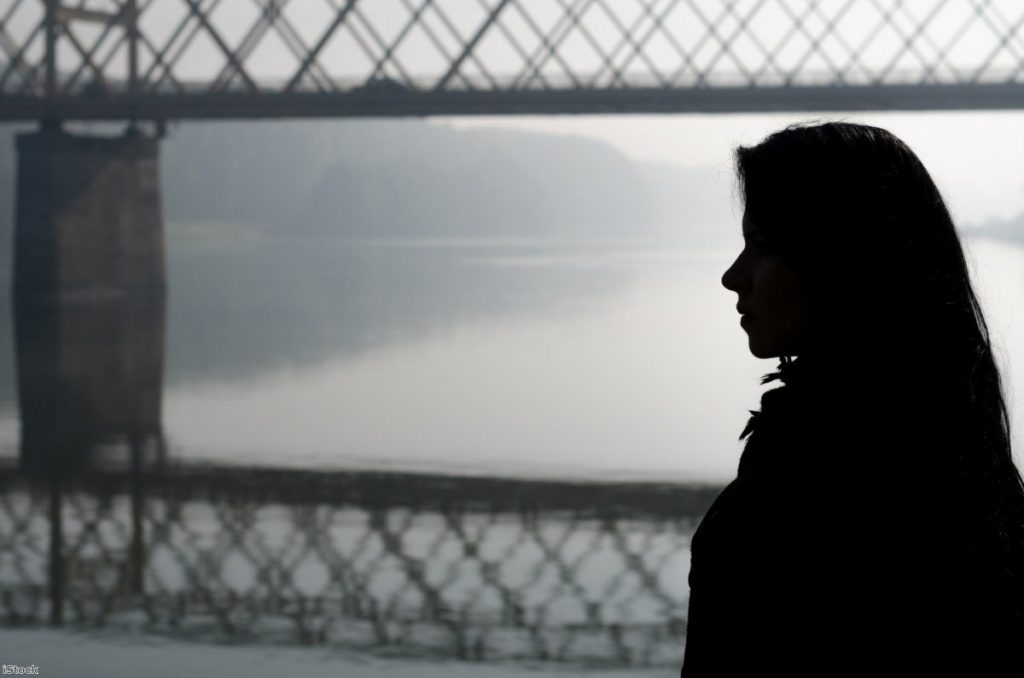By Sian Norris
When Taranjit Chana was 11-years-old, she noticed something unfair. While boys attended karate and sports clubs, she and the other girls had nowhere to go. They just had to sit and watch the boys. So Chana set up a Girls' Club for her and the other young women in her area. From there, a passion for women’s rights and equality was born.
That determination to achieve justice for girls eventually took Chana into the legal profession, where she worked with survivors of domestic and sexual abuse. But when the coalition cuts to legal aid were introduced, she was forced to leave the job she loved.
"When they cut legal aid," she says, "a lot of lawyers – particularly black and ethnic minority women lawyers – could no longer survive on the money we were earning because we were getting paid peanuts.


"We were passionate about the work — we wanted to help women. And so we stayed, hoping things would change. But they didn't change, and instead I had to make a stark decision about my future."
Chana's story is one of the unspoken impacts of the legal aid cuts: the draining of specialist talent from the legal sector as experts on male violence against women and girls can no longer sustain careers as solicitors.
According to a New Law Journal report published earlier this year, there's been a 25% decline in the number of solicitors taking civil legal aid cases. Meanwhile, the Bach Commission on Access to Justice found a collapse in the number of legal advice centres from around 3,226 in 2005 to 1,462 by 2015.
The government's austerity cuts have had a huge impact on the number of solicitors taking on legal aid cases, as Chana's experience testifies to. But what does this mean for survivors of domestic abuse?
"When the cuts to legal aid were announced," Chana explains, "there was an exemption for people experiencing domestic abuse. But it wasn't fit for purpose. Women needed to provide evidence that they had experienced abuse within two years. This made it very difficult.
"Many women were unable to provide the right kind of proof in that time frame. A woman on average endures 35 incidences of domestic abuse before reporting to the police. She might have been experiencing abuse for years and years. As a result of this restriction, a lot of evidence was excluded, making it harder for women to get an injunction or take their ex-partner to court.
"What was considered to be evidence was very restricted," Chana adds. "Women had to provide police reports or an assessment from a GP. Some doctors were charging the women I supported over £100 to get such an assessment. Evidence from midwives or colleagues or domestic abuse support services was not considered."
After complaints, the time period for getting evidence of domestic abuse was extended to five years. However, this still didn't go far enough. Rights of Women, a charity where Chana has volunteered in the past, looked at the impact of the cuts on women. They found that the rules to access legal aid for victims of domestic abuse were so restrictive that 40% of women didn't meet the requirements to get the support they needed to access justice.
Unable to pay for solicitors and unable to get legal aid, women were forced to represent themselves against their abusers in the court room.

Thankfully, Rights of Women took the government to judicial review and won. But for women like Chana, the damage had been done. With fewer solicitors experienced in dealing with male violence against women, it becomes harder for women to get the help they need to obtain protections such as injunctions, let alone pursue criminal charges.
Survivors of domestic and sexual abuse need specialist support that recognises and understands the complexity of the crime committed against them. That knowledge includes recognising how many incidents women will often endure before reporting it and understanding why. It means empathising with the fear women carry with them about reporting their partner, and acknowledging the barriers they have already jumped over to reach a point where they're approaching a solicitor.
For Chana, who worked with black and minority ethnic (BAME) women, that specialist knowledge is even more important. Supporting marginalised women means understanding the specific needs of survivors from various communities. This includes expertise on issues such as forced marriage. But it's also that holistic understanding of women's relationship with, and within, their communities.
The very fact that the initial legal aid cuts refused to recognise the complex needs of domestic abuse survivors — and that it took a women's rights organisation to challenge it — demonstrates how vital this specialist knowledge is.
Chana now works in the voluntary sector, offering support to survivors of domestic and sexual abuse.
"I was passionate about my work and because of the cuts I can no longer do it," Chana says. "And for a lot of us BAME solicitors — we worked so hard to get where we were – because of course a lot of the doors were closed to us. To find that, after everything, we can't do our jobs because we can't afford to put food on the table is very hard."
When the government returns to parliament after the summer break, the prime minister will likely bring in her much-trailed domestic violence bill. It is important, of course, that we see greater legal protections for survivors of domestic abuse. But with so many specialist solicitors already forced out of the sector because of the cuts, who will the women seeking support under these new laws turn to for help?
Passing a law is one thing, but enforcement requires solicitors who can afford to do their jobs.
Sian Norris is a writer and feminist activist. Follow her on Twitter here.
The opinions in politics.co.uk's Comment and Analysis section are those of the author and are no reflection of the views of the website or its owners.












